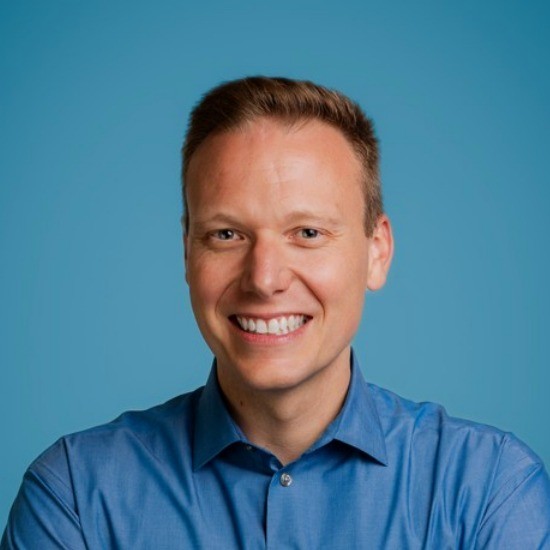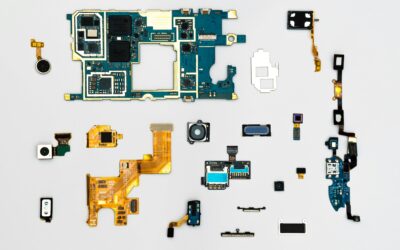Better Financial Decisions with Jake Sadler
Making better financial decisions can be simple, but not always easy. Jake Sadler talks about setting the conditions for making it happen!
Listen to us On
About the Episode
We focused on making better financial decisions, how all decisions are human decisions, the importance of curiosity in planning, how to create space for meaningful conversations, and how to get started, with Jake Sadler, CFP, Founder and Senior Advisor with Curio Wealth.
Listen to hear a difference-making tip on why simple doesn’t always mean easy!
You can learn more about Jake at CurioWealth.com, Facebook, Instagram, YouTube, and LinkedIn.
Did you get anything out of this episode? Do us a solid and leave a review:
https://ratethispodcast.com/alignedmoneyshow
Learn more and engage at MoneyAlignmentAcademy.com, Twitter, LinkedIn, Instagram, YouTube and Facebook.
Buy George G a coffee (he loves coffee)
https://www.buymeacoffee.com/lifeblood
Have George G speak
https://moneyalignmentacademy.com/speaking/
Financial literacy and wellness for individuals, families, and companies
https://moneyalignmentacademy.com/
Find George G’s books here
The Aligned Money Show is the podcast for Money Alignment Academy, copyright 2024.

George Grombacher
Host

Jake Sadler
Guest
Episode Transcript
Jake Sadler 0:07
Alright, Georgia, I gave this one a little bit of thought. So I’m gonna keep it, you know, keep it on a theme. So I’ve been working for, you know, like 25 years and had jobs in high school in college. A few different jobs.
george grombacher 0:01
Jake, to get us started give me two truths and a lie, please.
Jake Sadler 0:23
You have to figure out which one I didn’t do. Okay. All right. So I was a valet driver at a five star resort. I also worked at a Photoshop developing film. And I was also a stonemason, working on fireplaces and walls, that sort of thing.
george grombacher 0:46
varied interests varied interests from Jake. Was he a valet that he worked at a Photoshop? Or was he a stonemason? Wow. Hmm. I’m gonna say that you never worked at a valet?
Jake Sadler 1:05
You read me, right? I was nervous, la. Perfect.
george grombacher 1:09
So working at a Photoshop, I mean, I can’t even imagine the crazy, wonderful pictures that came across your desk. They’re
Jake Sadler 1:18
all different kinds of photos. And but you know, it’s one of those things where, like, you know, you just, you’re doing it all day, every day. It’s just, you know, one photos, it’s the same as the neck. So you’re trying to focus on like, Did it come out too dark? Do you need to reprint it, lighten it or darken it touching it up or something? And it’s so funny, because it wasn’t that long ago. But just you know, in the perspective of technology was like a distant past, where people would bring in their film. And if it wasn’t ready in an hour, that was going to be a problem. So
george grombacher 1:56
how funny isn’t that true? I’d forgotten about that. Yeah, develop in an hour. And you talk about instant gratification versus delayed gratification.
Jake Sadler 2:08
It’s totally different. And but it’s funny, I just saw an ad the other day, for it’s like a digital camera. Maybe it’s geared towards kids. But it doesn’t have a screen on the back. And it doesn’t tell you the only thing it tells you is how many photos you have to take, like, how many are in the memory card, I guess. And so we’re kind of coming full circle. Maybe back to that, you know, let’s be intentional about the photos we’re taking, you know, avoid this instant gratification, you get what you get, you know, yeah, and you gotta be mindful, a
george grombacher 2:37
little bit of mystery, a
Jake Sadler 2:39
little bit of mystery, I’m able to get a couple of those for my kids. So you know, give it a go.
george grombacher 2:44
I think that that’s a good idea. And stone masonry is that. How does one start doing that?
Jake Sadler 2:51
Yeah, it’s funny, I always I actually always wanted to try out stone masonry. And my dad, he was a contractor and he had some stonemasons that did really just fantastic fireplaces. And I was just always kind of really attracted to that craft. It’s just something that it spoke to me, you know, you just take stones. And even if it’s on site, you know, you work with the materials that you have. It’s such a real connection there. And so in college, I was actually I was out riding I used to ride road bikes cyclist for a lot of years, and I was riding past a crew they were working on like this stone entrance to a new subdivision. And I was riding by a turn around and stopping Hey, do you need a hand I really want to like, I want to try this out. I want to learn about stonemasonry could you the and and so they took me on and I worked a few summers you know, start out mixing mud mixing them order. And eventually they Alecia you know start laying stone on some not so visible spots, and then you get a little bit better and you know, then you can start putting stones in more visible places. So
george grombacher 4:06
I like it. And that could be something that you could fall back on. Jake is doing some stone work. I bet that there are some festivals that you could sell some stone stuff out in Asheville seems like there’s probably a lot of that going on there.
Jake Sadler 4:22
Oh, without a doubt, you know, it’s definitely I’ll keep that in mind. You know, that’ll be my that’ll be my own retirement. Oh, it is physically demanding. I tell you those days, mixing mud all day and just lifting stone it is so physically demanding and more than anything my hands would give out. So it’s just just that constant kind of a grip strength. So I don’t maybe not the best profession for retirement, but
george grombacher 4:47
I didn’t scratch that. Got to get a hang on to hang on to what you’re doing. Perfect. Yeah. Speaking of what is what is top of mind for you right now? Yeah,
Jake Sadler 4:57
yeah. So I mean, I’m a financial All advisor. And there’s, there’s one thing that’s really top of mind for me right now. And so I’m in the business, we’re in the business of financial decisions, helping folks make financial decisions. financial decisions, at the end of the day, are human decisions. And so what’s top of mind for me right now is really reconnecting with and focusing on settling into a space where we’re really connecting with folks, as they make human decisions, they happen to be financial, or there happens to be a financial component to those human decisions. But over the past few months, we’ve, we’ve started a new firm. And, you know, that process takes a lot of back office logistical effort and attention. You know, I was kind of thinking about it beforehand, you know, it’s like a, you know, if you have a nice restaurant, and they decide to move locations, you know, the chef, to run the restaurant, he has to shift his focus, to getting his new kitchen set up, he’s got to calibrate the stovetop in the oven, he’s gotta sharpen the knives, he’s got to make sure that all the orders for fresh ingredients are coming to the right location, that sort of thing. So as we’ve, as we’ve transitioned and started a new firm, we’ve had to really shift our focus to a lot of those kind of more logistical details. And, you know, with that dust settled behind us a really successful and smooth transition for us and our clients, you know, now we’re able just like the chef, now we can shift our focus, you know, the chef’s shifting back to making sure that his patrons have a really quality dining experience. And now we’re able to really settle in and focus on what’s important to us, which is connecting with that human side of money and the human side of these financial decisions that our clients face. So
george grombacher 6:59
it’s a great metaphor, if you were to you know, it’s one of those things were the thought of totally starting from scratch is probably and I’m not saying you’re totally started from scratch, but you have a clean slate. How do we think the right way to do financial advice is and, and? And here we are?
Jake Sadler 7:22
Yeah, no, I mean, it’s, it’s really, it’s a part of this process, and kind of central to you know, for us, you know, we’re starting a new firm. Our firm name is curio, wealth. And that comes from curiosity. And curiosity. The root of that word comes from the Latin, which means to care, JIRA. And that’s really where we’ve been focused, you know, it’s not that we haven’t been able to do that in the past. But it’s that now, that’s really what we’re focused on. So you know, what’s top of mind for us, it’s that focus that we’re really trying to create in an intentional way for ourselves as advisors. And in the end, they experience that our clients have is feeling heard, as human beings, you know, money’s just one part of our lives for each one of us. And there’s so many other aspects of life that are oftentimes much more important. There just happens to be a financial component to a lot of them. Yeah.
george grombacher 8:35
Yeah, certainly. For better or for worse, money touches pretty much everything, but the business of financial decisions, these are human decisions, and I wrote down why do we do things? Right, like, why? White? Why do we do anything? Why do we make decisions about things or, or not? Yeah,
Jake Sadler 8:57
no. And it’s really that it’s having those conversations, right? I mean, it’s, we work with, you know, a lot of folks and, you know, at times, you know, they say, Okay, we want to we want to do X, Y, or Z. And, you know, it’s okay, yeah, let’s just run some numbers and see how this fits. But a lot of times, if for no other reason, then we just want to know who they are, why this is important to them. It’s that question of why, you know, what’s really driving you to this decision, or if they’re, if they’re kind of at this point of being conflicted around a decision coming from a place of actually genuinely wanting to understand, hey, what’s important to you, you know, and allowing for that space because I think that’s what’s required in making decisions, especially making financial decisions and having that space to really kind of talk it out. And, you know, for us just to be a sounding board and to offer that space and to listen, you know, without without judgment and without having a predetermined direction or outcome, or them, you know, where do you want to go with this? You know, what’s important is driving this?
george grombacher 10:09
What are some of the conditions that have to be present in order for people to feel comfortable to have those kinds of conversations?
Jake Sadler 10:17
Yeah, that’s a great question. There’s a lot of different elements, of course, trust is at the center of that. And we really appreciate and respect that the trust that our clients have in us, we work with clients on an ongoing and long term basis. And trust is very fragile. You can spend years building trust, and building a relationship of trust and offering that space to clients where they can be heard in it, it can be gone in a moment. So with every action, you know, if we’re doing something on behalf of a client, we’re, you know, managing their portfolio, transferring money, whatever it is, we always have to be mindful and intentional that every decision counts not just from that perspective of trust, but because it does. And so that trust is a condition that has to be there, you know, for that space. But also, I think there’s this fundamental perspective that we have, as a firm, and as a culture where, when we’re with a client, there’s two, there are two experts in the room. We might be an expert, I have some knowledge and some details on some technical things related to taxes at the portfolio, or, you know, building a financial plan. So we might be experts in that our clients are experts in themselves, they are experts in what’s most important to them, and to our information, our knowledge is useless without their expertise. So it really is a partnership. And I think a lot of lip service can be paid to these ideas in our industry, I think more and more so as an attempt to differentiate but this is really important to us. And and we also have to have this space. And we also have to give ourselves the patients that we need as advisors, to make sure that we are being mindful and intentional about about offering our clients that space as well.
george grombacher 12:39
I love everything about that. I love the idea that there’s two experts in a room. And certainly, you as a financial professional, having done it for as long as you have probably make some pretty educated assumptions about people and sort of size them up for lack of a better term. But why not just ask, why not ask them? What’s important to them? Why not ask them about them first, before you just come with your solution?
Jake Sadler 13:03
Absolutely. It’s it’s really, I mean, it is hard. I mean, it’s a process. I mean, for me, just personally, you know, to kind of grow into that, it’s tempting to want to make these assumptions. I mean, like you said, I mean, we’ve seen a lot of different scenarios and different cases, different relationship dynamics, we, we can kind of see around some corners in terms of, you know, what the client might be experiencing, you know, at least financially, or what they’re kind of, you know, the challenges that they may be up against, but we, we have to hold back and take those steps back to say, Well, we think that we might be pointing that direction, but we just need to find out, we need to ask the question, so that we can hear from the other expert in the room to find out if that’s the truth or not. And so it is it is hard. But I think for me again, it personally, that’s the kind of personal growth trajectory that I want for myself, you know, that’s, that’s who I want to be. That’s what I want to, you know, how I want to be received and present in a room and that’s at the end of the day, if I were sitting in their shoes, that’s what I would want somebody else to do for me.
george grombacher 14:18
It strikes me that you need to have experience, you need to have the knowledge, you need to have the confidence to be able to sit back and even though I know the answer to the question, I don’t want to just say it, you want to help people to self discover and go through their go through their process and be there when they’re ready to say, you know, what do you think that we should do about this? Or what are some ways that that that have worked?
Jake Sadler 14:47
It does and I think along with that, you know, knowledge and experience it also there’s certain lines in the sand that have to be drawn. It’s, you know, we serve as fiduciaries for our clients which means we have a legal level gation on duty of loyalty to them that our advice is in their best interest. And if we see something, if we see a habit or decision that we don’t feel is in their best interest, even if they’re saying this is what I want to do, we have a responsibility to say, Hey, I’m concerned about this, I’m concerned about where this might end up. And let’s, let’s talk about the potential outcomes. And so we do at times have to draw those lines in the sand to point out things that we see aren’t in our client’s best interest. So it’s easy to hit all the green lights. So here’s what we usually say, you know, you’re driving down the, you know, main main boulevard, and, you know, hit all the green lights, you don’t need any help, but you hit a, you hit a few red lights, and, you know, you need to know, that’s what we’re there for.
george grombacher 15:51
Isn’t that the truth? It’s easy to navigate Boulevard of under uninterrupted green lights. But when there’s something at the head that I can’t quite see, or whatever, yeah, being able to have some professional advice. And you’ve earned the right to through trust and the listening to be able to be more assertive and to say, you know, what this is? This is something that I think that we’re going down the wrong path, or whatever it might be.
Jake Sadler 16:22
Yeah, absolutely. And, you know, our, again, if I’m sitting in your clients shoes, I don’t want an advisor who’s simply going to just agree with everything, you have to say, you know, it’s important to be challenged, you know, when your ideas, you know, have some risk and carry some risks. So, you know, that’s part of our job is to offer a challenge. It’s not again, without judgment, it’s just objectively, hey, we need to challenge this idea.
george grombacher 16:55
One of my least favorite words in probably everything is absolutely. So if you find yourself sitting across the table from a financial advisor, and they’re saying yes, and nodding their head, and absolutely Oh, for sure, that comes out of your mouth is 100%. Correct? You’re probably in the wrong room. Because number one, there’s nothing that’s absolute at all. And, yeah, I want somebody who’s going to push back and, you know, iron sharpening iron kind of a thing versus Absolutely, yep. Yep. Let’s just keep moving.
Jake Sadler 17:23
Yeah, I know, I tried to be really measured in responses when there’s a high degree of competence. Okay. That’s the objective observation. There’s a high degree of confidence. So you don’t say, Oh, absolutely. 100% You’re good to go. Now. I mean, you know, there’s a high degree of confidence. Yeah. So we try to be measured. It sounds pretty nerdy at times. But But yeah, that’s, I
george grombacher 17:44
appreciate that. There’s some things that as you are, because you have some, some, some other co founders, right? Yeah. So you all you, you, you all put your heads together. And you said, here’s what we want to do. What are some of the things you said, you know, what, we definitely don’t want to do this, we definitely don’t want to fall into these
Jake Sadler 18:05
traps. Yeah, and, you know, that’s really important, you know, knowing what you want is one thing, but it’s also you have to know what you don’t want. We do not want to be transactional. You know, there’s certain elements of what we do, okay, that are kind of mechanical, but we don’t want it to be transactional. You know, if somebody, if a client needs to save a dish, they retire, they need to distribution for a big trip that’s coming up. What we don’t want is, we don’t want to just be there as a bank to say, Oh, wow, I didn’t, I had no idea you were going to do do that we’ve got the money for you. And I’m going to ask you where you’re going or what you’re doing, or why it’s important. Others get the money out to you. And I’m robbing anybody talk to you to be you know, someone on our really good service team. So that’s what we don’t want. We don’t want to be transactional. You know, we want to be a part of the conversations to explore what’s important to them. We want to know about this trip years in advance. I have a client who you know, she has some Italian heritage and for years and years, she wanted to get back to to Sicily, Italy, where her family’s from, she did some DNA tests, you know, so 99% is right there from his one car in Sicily. And she never knew if she could afford it. But we were offering the space, you know, first aid, you know, this is what she really she wants to try to make that connection back to her roots. And so first we’ll ask them the question. I mean, is it possible so we run numbers and all that sort of thing, but we have his conversations about what’s important and why and to hear that and to know that at the point where she It comes years later and says, I booked the tickets. I’m going, it’s so rewarding. I mean, it’s selfish in a way, because this, for me is really exciting and rewarding to know that I’ve been privileged to be part of this journey to where I didn’t know she could do, she really wanted to do it. And now she’s booked the tickets. And then for her, you know, to get back and say, as I was, as we were approaching Sicily, and coming in for a landing, I just felt like I was home, you know, those are to hear that experience. And again, it’s just a privilege to be a part of that journey. But that’s what we want. I mean, you could take, you get two possible outcomes for the same thing, client needs money for a trip, or really wanting to be a part of their journey on these decisions. And it’s really, two very different things. So yeah, we don’t want to be transactional. That’s not at all what we want. And again, I had mentioned, I think patience, because for us, our day to day, so many other folks, it can just be overwhelming, we can be swamped with a million, it could be mechanical, kind of seemingly transactional things. And so the patients to be intentional, methodical, and to recognize and appreciate those moments where, you know, client is fulfilling something, you know, reaching a goal that they had always wanted to achieve, and being present in that journey with them. So we kind of have to take a step back to appreciate that as well. We want we want to have that. Yeah,
george grombacher 21:31
I love it. It’s a great example of don’t call ahead to the bank to discuss why I’m about to take money out or whether or not it makes sense. I just get there and I expect them to give me my money. Yes, it’s a different dynamic than the one you laid out. I think that that’s really well said. So
Jake Sadler 21:50
that’s a good analogy. Because, you know, that’s pretty much what we don’t want. And, you know, we’re in, we’re in the business of relationships, and we want relationship because we’re human too. We want relationships that are rewarding and fulfilling for us. You know, these are, these are the people that we’re choosing to spend our time with. They’re choosing to spend time and trust us. And we’re also choosing to spend time with them. And we want to value and appreciate people the relationships that we have. So being intentional, again, is really important, their
george grombacher 22:28
financial decisions are human decisions. Jake, we’re ready for that difference making tip, what do you have for us?
Jake Sadler 22:38
The difference making tip that I want to share is that simple, does not always mean easy. Simple does not always mean easy. And there’s a lot packed in to that tip. We could go down a number of different avenues. But as I reflect on the work that we do with our clients, and where we have seen folks find success, it’s it really within that message. That simple doesn’t mean easy. There’s so much noise out there when it comes to making financial decision. It can be really distracting. We can be very tempted to overcomplicate our financial lives, thinking that we’re doing all the right things because we’re focused on these complicated details. In the end, you know, for a lot of folks, you lose, you lose sight of the forest for the trees. And a sim simple message when it comes to a financial decision. A lot of people can turn their nose up at it and say that doesn’t sound complicated enough to be the right answer. Just because it doesn’t sound complicated, doesn’t mean it’s easy. I think that’s why it gets dismissed. Right? I want to prepare for retirement. You know, whatever age you are, say you really need to save. If my message to someone is you need to save more for retirement. Well that I knew that. Right. I mean, like that’s what they could say that’s that’s really simple. I don’t have as much as I need and well, the only way to get there is to save Yeah, I already knew that tell me something different to make that go away. Because the the reality is, that’s not an easy answer. That’s the years of dedicated hard work and commitment and discipline. Packed within something that sounds simple. Yeah, there’s a lot Different examples that we could use where the simple answer is just easy to dismiss, because it doesn’t just seem right. But so often it’s the case that simplicity is the right answer. It’s like, I mean, I don’t want to say it, but it’s the old, you know, kiss, keep it simple. And it’s, I’d say that to myself, so I feel comfortable saying it. If you overcomplicate things, you end up getting sidetracked, and you lose sight of what’s really important to you, and making the progress that counts. And you lose sight of the things that you actually have control over. None of us are making effective decisions. If we’re focused on things that we can’t control. We have to focus on things that we can control. None of us are likely to make good decisions if we don’t remain discipline. And if we don’t remain patient over time, discipline and patience. Oh, wow. That’s that’s a you know, that’s your financial plan. That’s really simple. Yeah, it might be simple, but that’s not easy. So, you know, that’s, again, there’s a lot baked, baked into that, and, you know, outcomes razors, another one that comes to mind, you know, the simplest explanation is likely to be the right one. And the last thing I’ll say, you know, at least on this idea in response is sometimes the simplest solution has been the most well tested. It’s been tested against every degree of complexity, every question challenge with every possible question. Yet it remains the steadfast answer. Right. So it’s not that a complicated solution is better than a simple solution. Because it’s different. More than likely, something like it has been tested against the simple solution before and failed. So simplicity is a lot of times the advice that that wins the day. But again, it’s not always easy. Well,
george grombacher 27:30
I think that is great stuff that definitely gets come up. Part of that part of the human condition right there, Jake, we have a tendency to overthink and over dissect it overcomplicate. And just because something is simple, doesn’t mean that it’s easy or have low value for all the reasons that you just described. So I’d love it. Well, Jake, thank you so much for coming on. Where can people learn more about you? How can they engage with you?
Jake Sadler 27:57
Yeah, no, absolutely. I mean, we’ve got a great online presence. So you can find us on our website curio. wealth.com. We’ve got a blog, which we call curated, curated curiosity. curating the right resources is really important because whether or not we’re working with you, as a client, we we want everybody that comes into contact with us to leave with more than they came, you know, with. And so curated also mentioned comes from the same root word, to care as curiosity. So So curiosity, Curiosity is our blog. We also have a podcast called Conversations with curio I’m in Asheville, North Carolina, I work with folks nationwide as do my partners so you can easily find us online you can go from there.
george grombacher 28:43
Excellent. If you enjoyed this as much as I did, so, Jake, your appreciation shared today, share with a friend who also appreciates good ideas, go to curio wealth.com See you our i Oh wealth.com. Check out the conversations with curio podcast. Check out the curio cure, curated curiosity blog. Say that three times fast. I can’t even say one time fast. curated curiosity, curated curiosity, curated curiosity. Nailed it.
Jake Sadler 29:12
You did it. Nailed it.
george grombacher 29:15
Thanks again, Jake. Thanks, George. By only a friendly reminder, never gonna be anybody more interested in your financial success than you are. So act accordingly.
More Episodes
Beyond the Bank Balance: Cultivating a Soulful Relationship with Money
You don’t need to be a Wall Street shark or a personal finance guru to develop a healthy relationship with money. In fact, most of us start with little more than a jumble of beliefs and habits passed down from our families. But if you’ve ever found yourself stressed...
How Using AI Can Help You Gain Clarity Into Your Financial Future
In today's fast-paced, data-driven world, achieving financial clarity can feel like an overwhelming task. With numerous financial decisions to make—from budgeting and investing to retirement planning and debt management—it's easy to feel lost in the complexity of it...
How AI Can Help Improve Your Personal Finances
1. Smarter Budgeting and Expense Tracking AI-powered tools like Mint, You Need a Budget (YNAB), and PocketGuard can automatically categorize your expenses, track your spending in real time, and even alert you when you’re about to exceed your budget. These tools...
Trust and Confidentiality When Using AI as Your Financial Coach: Safeguarding Your Sensitive Data
In the digital age, artificial intelligence (AI) has revolutionized many aspects of our lives, including personal finance. AI-powered financial tools have become a go-to resource for budgeting, investing, debt management, and even retirement planning. But as more...
How AI Can Be Your Personal Financial Coach: Unlocking the Future of Financial Success
In today’s fast-paced world, managing your finances can feel overwhelming. With so many options for saving, investing, and budgeting, it can be hard to know where to start or how to stay on track. Fortunately, advances in technology—specifically Artificial...
How Technology and AI Are Benefiting Investors and Consumers in Securing Their Personal Financial Futures
In recent years, the rise of technology and Artificial Intelligence (AI) has profoundly transformed the financial landscape. These advancements have empowered investors and consumers to make more informed, efficient, and personalized decisions about their financial...
10 Things New Parents Should Be Thinking About Regarding Their Personal Finances
Becoming a parent is one of the most joyful and transformative experiences in life. However, it also brings new financial responsibilities and challenges. If you’re a new parent or expecting, it’s crucial to plan ahead to ensure your family’s financial security. Here...
10 Things Newlyweds Should Be Thinking About Regarding Their Personal Finances
Marriage marks a new chapter filled with excitement and partnership. While love may be the foundation, financial harmony is key to building a stable and happy life together. To set yourselves up for success, here are 10 essential financial topics that every newlywed...
Financial Tips for New Parents: Building Stability and Security for Your Growing Family
Becoming a parent is one of life’s most rewarding experiences, but it also brings significant financial challenges. From diapers to daycare, the costs add up quickly. Whether you’re a first-time parent or adding to your family, managing finances wisely is crucial for...
Join the show.
Interested in being on the show? Tell me a little bit more about you and what you’d like to talk about!














